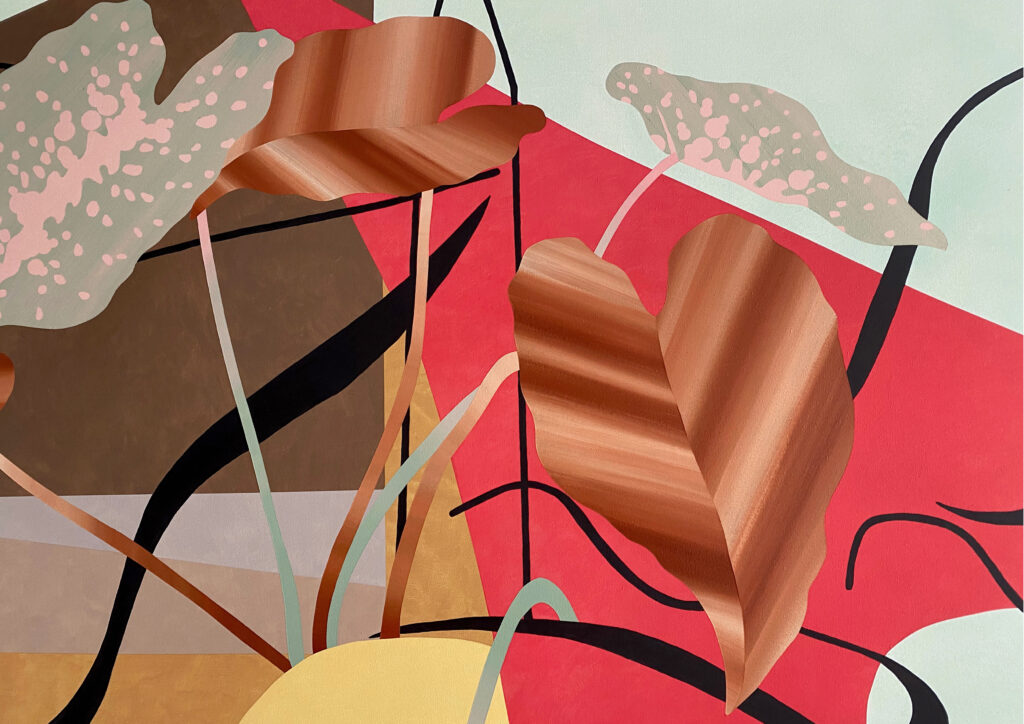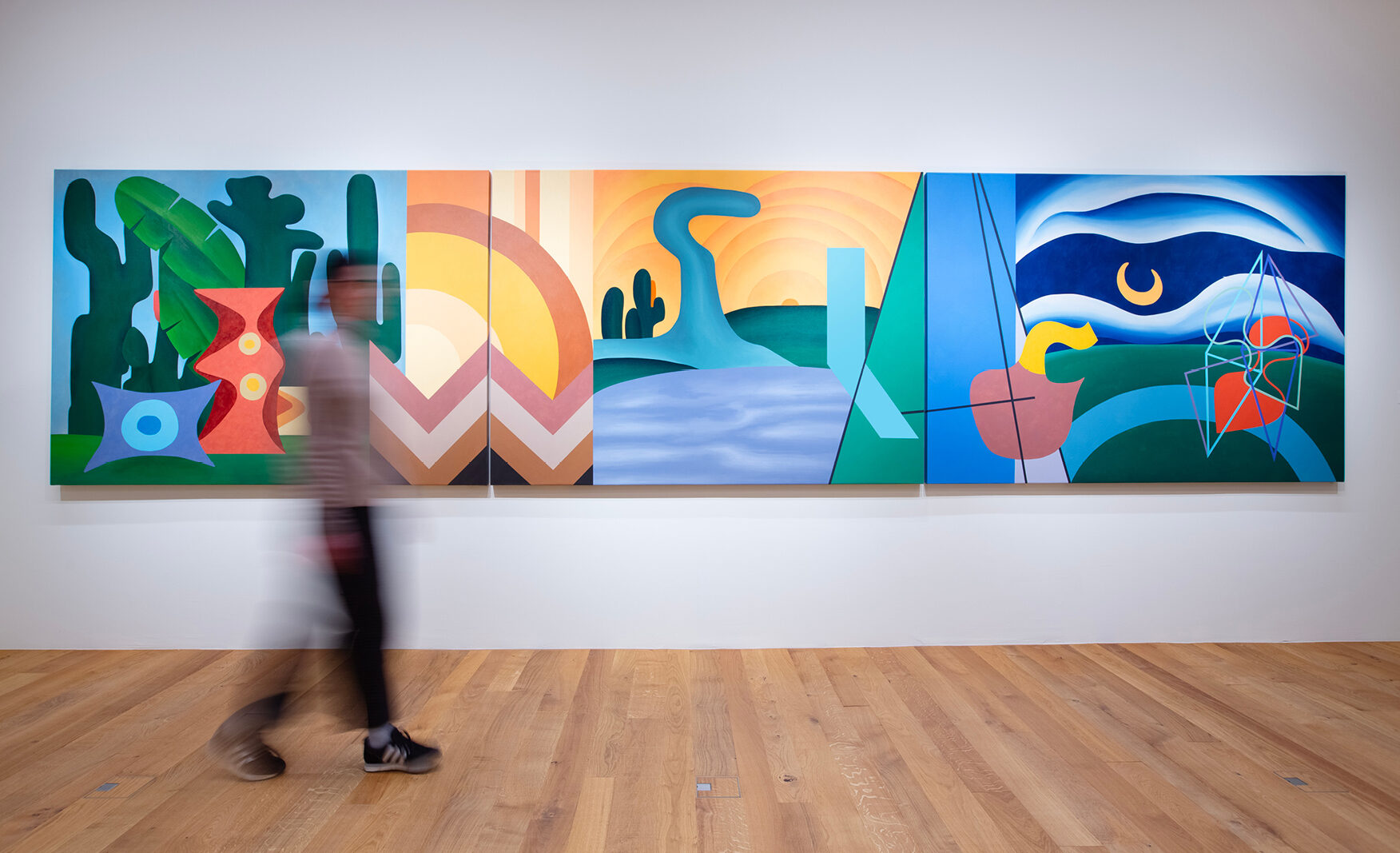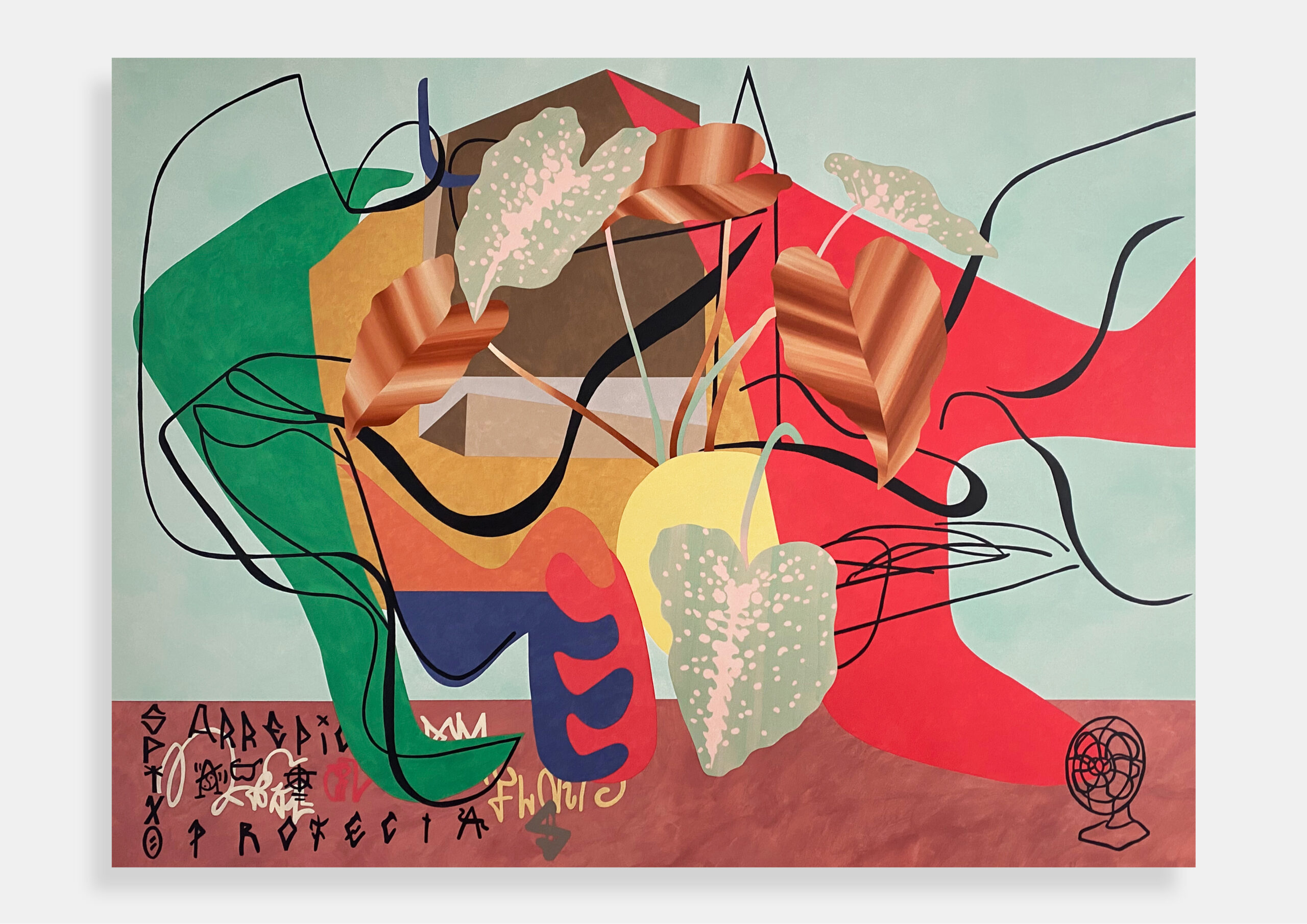Barbaric protopia – Profecia 2022 – Acrylic on canvas – 150 x 200 cm


Protopia is a paired concept of the Metamodern* philosophical movement. It envisions a future where positive advancements and developments constantly occur, but a final, static state is never fully achieved. While the idea of Modern Utopia implies a society in a flawless state, Protopia acknowledges that perfection is often unattainable and that progress is an ongoing process.
Modernism and Postmodernism had significant advancements in various fields. However, contemporary society continues to witness and perform instances of violence, wars, inequality, exploitation, and environmental destruction resulting in loss of life, suffering, and displacement.
This series explores the landscaping of the Brazilian Burle Marx and the concept of Model City by the Swiss Le Corbusier. Burle Marx was passionate about native forest preservation in Brazil, and he is considered one of the first environmental activists in the country. Le Corbusier’s vision of the Model City, in turn, was based on the belief in the transformative power of urban design to improve people’s lives and create functional urban environments, including providing residents access to nature. Both of them operate within the logic of modernism. The paintings are composed of appropriations: modern architecture and paintings, graffiti, cartoons, native vegetation, and landscaping to create friction between dystopian and utopian elements.
Barbaric Protopia is then a conceptual juxtaposition of progress and regression, suggesting a society where both advanced developments and elements of barbarism coexist.
*Metamodern emerged in the late 20th and early 21st centuries as a response to Postmodernism. Metamodernism seeks to reconcile the skepticism and irony of Postmodernism with a renewed sense of sincerity, hope, and authentic engagement. It acknowledges the complexities of contemporary existence while embracing both modernist and postmodernist good values.

